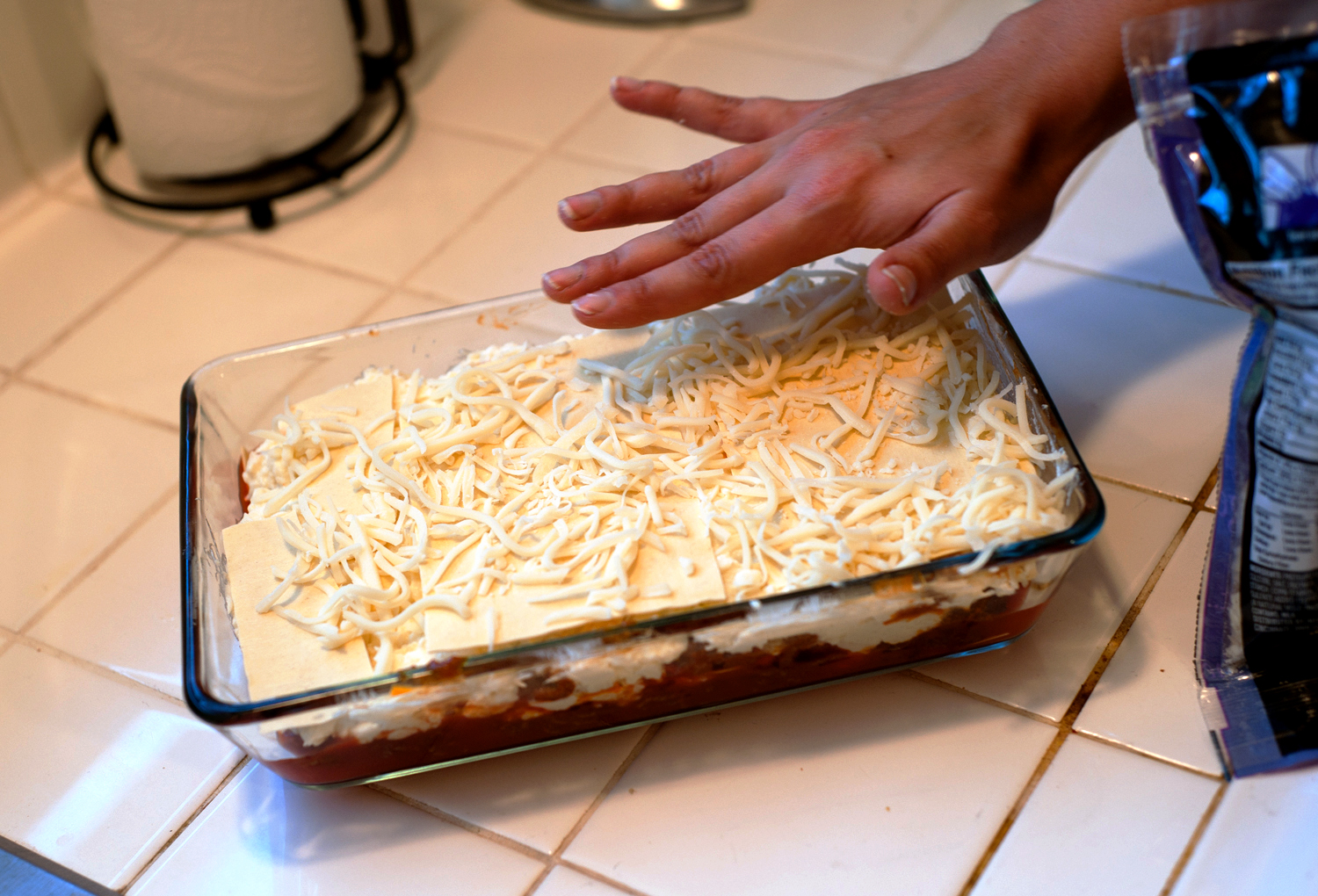
To layer the lasagna, coat the bottom of the pan with sauce and place the meat with no-boil noodles and cheese mixture on top. Sprinkle the remaining cheese on top.


Kitchen ““ 0, Maryia ““ 1.
I broke two dishes while preparing this lasagna. I was also in no mood to be anywhere near a kitchen while I was baking it. Spoiler alert: In the end, it was all worth it.
Looking back on my culinary endeavors this week, I allude to the recent best seller “The Particular Sadness of Lemon Cake” by Aimee Bender.
The general synopsis is that a young girl, Rose, can taste the chef’s feelings in the food that he or she makes. A depressed person’s cheesecake tastes melancholy; a livid person’s beef stroganoff tastes irrationally angry, etc. I wonder what my lasagna would have tasted like to her.
After all, I wasn’t feeling my best when I layered that lasagna on Sunday night. The cheese mixture was probably laced with a little sadness; the tomato sauce had to taste tired and the ground beef at least a tad angry.
Little Rose would have spit my lasagna right out. But in the real, rather than literary, world it was actually good.
My photographer tasted it and she went back for seconds (not to attribute that to the fact that she was starving or anything). I tried it, and, for the most elaborate meal I have ever cooked, it came out well.
First-year pre-psychology student Gloria Rivera, who sent in the recipe seemed to enjoy it too.
My conclusions are the following: Either it really doesn’t matter what mood you make food in, as long as you mix the ingredients correctly, or Bender missed a caveat in her fictional best seller.
Maybe food made while in a blue mood can actually make you feel better, and that is reflected in the final product.
My nearly two-hour cooking and baking process produced something: a dish with eight layers that has now fed me for days. It didn’t taste like something I would cook, mostly because I have never before put in this much effort (even though the sauce was pre-made and the noodles didn’t need to be boiled).
It is probably an elementary fact to people who cook regularly, but I learned something that night: When you cook, you create.
I finally understand why chefs more experienced than I slave for hours to throw a dinner party, or why my roommates bake. At the end of the day, you have the product of your toil, and an edible one at that, as long as you can read the recipe.
I learned a few more specific lessons, too.
Mozzarella, for example, has a lower boiling point than parmesan. If you run out of parmesan, wait until the final 10 minutes of the baking process, when you take the foil off, to sprinkle on the replacement mozzarella. Break up the meat mixture well while frying it with the sauce so it layers better in the end.
But these things are minor.
The point is, when you cook, you create something meaningful ““ you need to eat to survive, after all. And that is an uplifting thought indeed.
If you think you want to taste what Krivoruchko feels when she cooks next week, e-mail her a recipe at mkrivoruchko@media.ucla.edu.
“Fire in the Kitchen” runs every Thursday.
